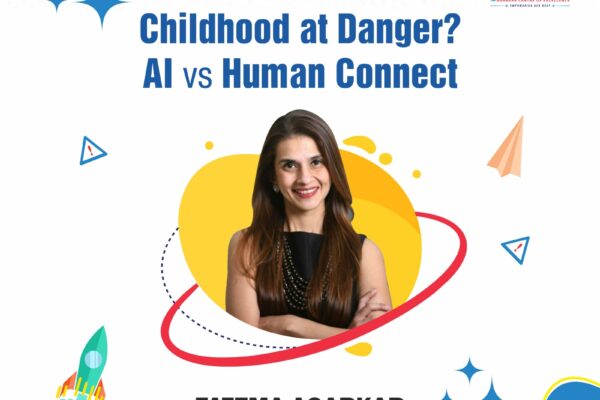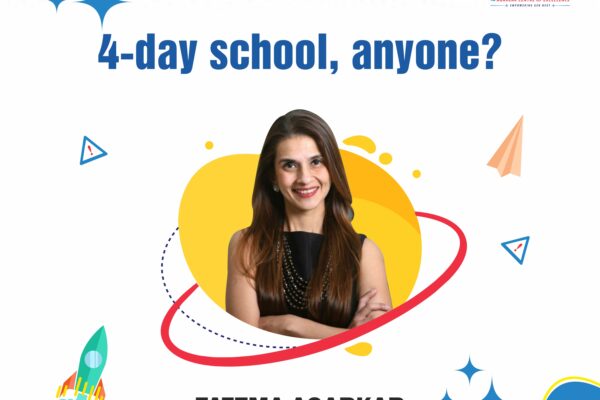The National Education Policy (NEP) announcement yesterday has created a new sense of excitement for educators (a welcome break from discussing the virtues of online learning, how one can optimise, when schools will open, and whether or not parents should honour their fee commitments). Since last evening social media has been abuzz with discussions, questions raised, doubts put forward with what is indeed a much needed direction as far as the country is concerned. A direction that took 34 long years to be researched and tabled by the Cabinet, and awaits its nod in the Parliament in time.
Excitement is noticeable, these days and social media is a good barometer test to gauge reactions, that is of course, if someone is indeed interested in the feedback that this announcement has generated. The Ministry of Human Resources, popularly referred to as MHRD now undergoes a name change and will become the Ministry of Education (MoE) and has the Prime Minister himself as an integral part, was the big news yesterday.
With this article, I will join the many before me who have penned interesting perspectives and views about the policy, and I must admit, ideas shared will be very useful going forward, so those reading this must consider reading the many thoughts emerging. I always believe someone else’s perspective enables you to evaluate your thoughts, and that at times, is timely correction. So for most parts, this article will not dissect the policy. That has been done and we know what’s exciting about it, given this is a macro framework and a direction with a set of guidelines. More when the implementation begins next year but I suppose us as educators sharing our opinions is to ensure that we are safe than sorry, and some of these get factored in at the draft stage itself so it saves time!
While penning my initial reaction to this comprehensive 60 page document which in most parts is talking about a tech enabled young generation that is groomed for the future, where every child matters, and will be given the opportunity to learn and be skilled with language arts and numeracy as the core, vocational skills in middle school years, a feature to make learning relevant, gifted programs for students as an inclusion, and most importantly a change that is significant – how these children will be taught, steering away from traditional methods of teaching-learning. It speaks about integration of different subjects areas and a seamless scheduling of activities including co-curricular and evaluating children’s learning in a manner that tests their ability to apply, and optimises their minds, instead of repeating what is in the text-book. These changes when implemented (and that for me is the bigger key) will lead to our scores improving as a nation when assessed by any global bench-mark exam to showcase what is truly our talent in India. We all know, Indians haven’t been the best at these competitive exams globally and that largely had to do with our system of teaching and testing. We packed in too much “content”, without a defined scheme of work unlike some international organisations, and we surely “standardized” too much. So this policy is definitely on the right thought process.
While writing this article, I was distracted with many messages on my what’s app groups (yes guilty of many) that had a forward titled, “A very important decision ……” with details about the policy that would only make sense to educators, yet has been forwarded on mommie groups, school groups, and also building/society groups. I had to stop several times to address some concerns that parents had – does this mean, there will be one academic board now, and does that mean we have to be worried?
The one thing about forwards should be that people actually must read it before forwarding, and for the 100th time and this time via my blog, there is no mention of one academic board, and for the life of me, I cannot understand how this would concern parents, as this document needs to be analysed, discussed and clarified by states, those implementing it. Quite frankly, I am wondering if the PR machinery behind this wanted to create awareness? Really? What kind?
Well that sorted, my two big take-ways from the NEP is the fact that we are aligning K-12 with higher education and inclusion of early childhood education as part of the MOE means that we are finally recognising that we cannot work in stylos and we need to come together under one umbrella with an eye on how higher education is organised, and the choices students have – grateful for the “credits” and “gap” year inclusion and breaking it down to 4 years graduation so that we can vertically align it now from Nursery onwards. This vertical alignment is critical and then irrespective of national or international boards (that will now be regulated by a common body across the sector), will have certain Common Core Standards. Each board may do more, and get creative, but it does not take away from the base line and that as a country we should be proud of. The second is speaking of technology as the enabler with a clear view that India as a nation will only be able to compete with the best in class, if we implement a Digital India vision and that must be exposed to and taught in schools. Well gentle reminder to all those opposing online education at the moment, look at the bigger picture as defined in the NEP.
So far so good with the policy news I must admit.
There were a few doubts that got clarified especially about medium of instruction – well medium of instruction (upto Grade 5) can be in regional languages but not compulsory, which would have been unconstitutional anyway. So, relax everyone who flooded Twitter with this question! Also, the structure from 10+2, now defined as 5+3+3+4 is finally organising the academic milestones as they forever should have been! For us in the early childhood education space, kindergarten children going into Grade 1 and 2 always had a transition problem from a half day school to full, and from being little ones to now “formal” teaching-learning was unrealistic and therefore this structure is the best part of the NEP. It works with science and the child’s learning capability and therefore, once again parents, this does not mean that now pre-schools will be upto Grade 2 and children will apply at Grade 3. Pre-schools will continue as they are, the pre-primary sections of high schools will now focus their attention to teaching-learning at Grades 1 & 2 that aligns it to early childhood education. This has been operational in many progressive schools for decades now, so this finally making its way to government schools is a huge step.
I enjoy when best practices are being embraced, and this policy represents thoughts, opinions and perspectives of senior educators whom I know personally, and it is reassuring.
Where this policy lost me was the bit about “not commercialising” education. Is that a dig at the private sector? I could be entirely wrong and while I am grateful for the increase in the spends towards education from 4.5 % to 6% of the GDP for government schools and I hope a large part goes toward IT infrastructure and skilling capabilities of the teachers (this means nothing really unless it is implemented effectively). So the sector that was not government funded and attracting investors to create world class learning institutes somehow might consider itself side-lined. Like I said, too premature for me to comment on it till we see the Standard Operating Processes, but the words were perhaps not evoking the kind of confidence that this sector required.
Granted as a government, the need is to upgrade the public schools, and ensure that more students are enrolling there as the numbers have been dwindling in the past decade or so, with most parents moving towards the private sector. But if the policy is regulating both public and private sector schools, is it not appropriate to give the private sector some freedom to execute and not charge them “commercial” rates? Would it not be wise to look at models operational globally where the presence of an evolved private sector heralds best practices and systems and processes that allow for the overall standard to improve. Is it also not true that organisations have a Right to Earn and also parents a Right to Choice where their children should study. But constantly holding this sector back, may in the long run backfire?
Well, I would like to hold these thoughts back, see more of the “micro” but this bit worries me. The rest is positive and balanced, but the balance to be fair must be balanced for all!












